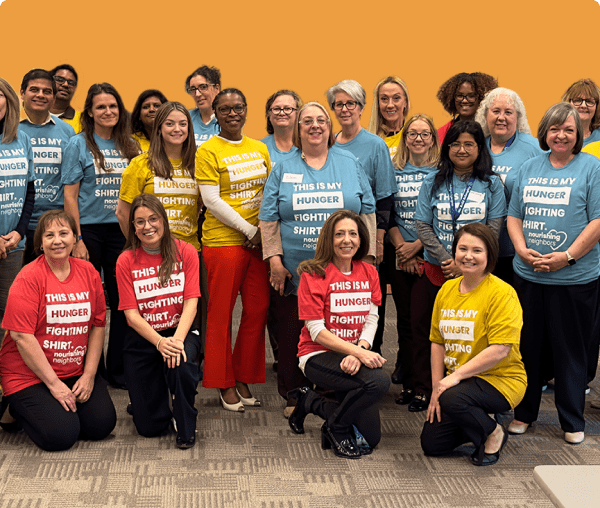Connecting on equity: Event recap
 Gohar Chichian
·
3 minute read
Gohar Chichian
·
3 minute read

Equity has become a vital topic of discussion in the philanthropic sector – but what does it mean to adopt an equity lens, and what are the tangible actions foundations can take to more equitably serve their communities?
We hosted a discussion with two of our foundation partners to dive deeper into these questions. We were joined by Aiyana Marcus, Senior Program Officer at Charlottesville Area Community Foundation in Virginia and Terry Whitfield, Program Officer from The Skillman Foundation in Detroit. Catchafire’s Sha-Kim Wilson, Senior Director of Strategic Partnerships, moderated the insightful conversation.
Watch highlights here:
Aiyana and Terry shared their experiences on learning the needs of their grantees and delivering capacity building resources for different racial identity groups. For both foundations, the past few years have been one of reflection, learning, and growth.
Many common themes arose during the conversation and attendees entered breakout rooms to discuss similar experiences. Discussion highlights included lessons around:
Building relationships and being connected to all parts of the community is crucial. It is critical for grantmakers to improve the quality of life for all members of their community and to make them feel seen and heard; otherwise they have failed in their mission. Commitment to equity has to be more than a core value; it needs to be exemplified in the foundation’s actions and outreach to the community.
Foundations need to reimagine their grantmaking strategy, and allocate funding for healing for Black, Indigenous, and people of color (BIPOC) leaders, who need the time and space to carry on the long-term work in their communities.
Actions speak louder than words. Foundations need to prioritize looking inward at their existing structures. Is their grantmaking strategy equitable? Is equity being applied to the organization’s governance and Board design? How is the Foundation regularly assessing its practices? What is its communication tone with funders?
Foundations can start by creating a baseline of information to better understand and align staff, stakeholders, and Board members about how to embed equity throughout the Foundation’s practices. Conduct an internal audit into best practices, stakeholders, vendors, and everyone involved with the Foundation’s work. Incorporate the entire staff in the strategic planning process and throughout the racial equity training journey.
Data is a proof point. There’s evidence to back up equity work and best practices to outline the importance of integrating this approach in grantmaking.
“We are examining ways that our committee and our Board are more representative of the community and closest to the issues…Why are we recruiting people who would likely block good, equitable work to begin with? Why are we giving them a voice with the greatest power to veto something if they have no lived experience, no real expertise?...
Do they have the agency to block it? We have to shift our thinking - we focus too much on mitigating the blockers and centering the voice of the blockers than those who have been consistently blocked.”
Aiyana Marcus, Charlottesville Area Community Foundation
Step away from a ‘one size fits all’ approach for grants. Challenge your organization to think creatively about how to reimagine grantmaking. What has worked previously may no longer be the solution. Shift toward trust-based philanthropy and consider how grant dollars can be more responsive to grantees’ needs. Avoid working within silos.
“The pandemic forced philanthropy and The Skillman Foundation to be more responsive with how we were engaging with our grant partners, not be so beholden to the letter of the grant agreement, and really move into the space around trust-based philanthropy and understanding that they are the experts and they are the ones closest to the work. How can our dollars be most responsive to their needs as they are encountering and navigating the ever changing world in which they’re in?”
Terry Whitfield, The Skillman Foundation
Respond thoughtfully and urgently to the needs of the community. Create relationships with those who are closest to the issues the Foundation is looking to address. Lean in to the expertise of the community and create an ongoing feedback loop. This ensures continual learning and a nimble response to the community’s needs.
“We need to understand ‘When is it our time to lead, and when is it our time to listen?’”
Aiyana
"The most important thing is to listen - not listen to respond, but listen to understand. Our grant partners are letting us know what they need…We need to continuously come back to: how is this bringing us closer to our mission, to our partners. What spaces are we creating for our partners to give feedback, true authentic feedback to how the Foundation is moving? It starts with listening, humility, and being able to call out if you have made a misstep.”
Terry
Get involved with Catchafire
If you’re a grantmaker and would like to learn more about equipping nonprofits in your community with responsive, high-quality operational support, let’s connect. Email us here.



